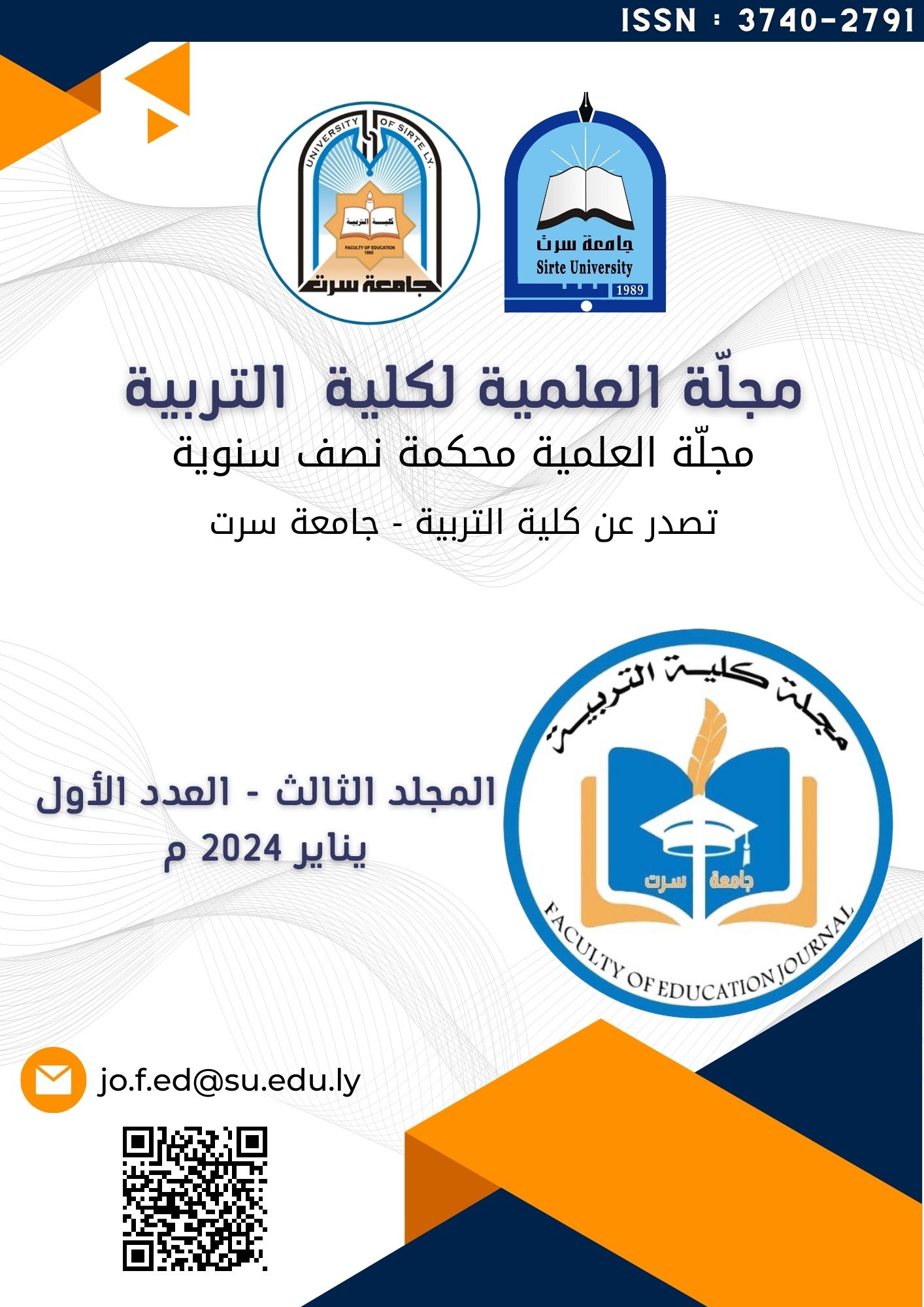Applying Collaborative Filtering Algorithm for Recommendation Systems
DOI:
https://doi.org/10.37375/foej.v3i1.2589Keywords:
User behaviour, collaborative filtering algorithm, user interests, recommended booksAbstract
This study addresses a vital aspect of scientific inquiry, namel
This study addresses a vital aspect of scientific inquiry, namely the acquisition of information sources such as books from e-commerce websites. When the variety of books offered on these websites is extensive, it becomes challenging for user to select suitable books from the vast available number, which continues to grow annually. This negatively affects users, as they waste a significant amount of time in the selection process.
Therefore, this study aims to contribute to solving this problem by assisting users in exploring and acquiring information sources that align with their interests. The collaborative filtering algorithm, based on user behaviour, was employed as one of the recommendation system methods, to verify the accuracy of the system, the distance difference equation was used to measure the similarity between the recommended books and the required book.
The study obtained several results, including providing users with helpful information to make appropriate decisions that meet their needs based on their behaviour. It also suggests related items based on their interests, thereby avoiding decisions that do not align with their preferences. Additionally, the study alerts users to choices that assist them in achieving better outcomes.
This study addresses a vital aspect of scientific inquiry, namely the acquisition of information sources such as books from e-commerce websites. When the variety of books offered on these websites is extensive, it becomes challenging for user to select suitable books from the vast available number, which continues to grow annually. This negatively affects users, as they waste a significant amount of time in the selection process.
Therefore, this study aims to contribute to solving this problem by assisting users in exploring and acquiring information sources that align with their interests. The collaborative filtering algorithm, based on user behaviour, was employed as one of the recommendation system methods, to verify the accuracy of the system, the distance difference equation was used to measure the similarity between the recommended books and the required book.
The study obtained several results, including providing users with helpful information to make appropriate decisions that meet their needs based on their behaviour. It also suggests related items based on their interests, thereby avoiding decisions that do not align with their preferences. Additionally, the study alerts users to choices that assist them in achieving better outcomes.
Furthermore, this study recommends comparing the collaborative filtering algorithm, which relies on user behaviour, with other algorithms such as content-based recommendation algorithms. The aim is to highlight the superior algorithm in terms of results.
y the acquisition of information sources such as books from e-commerce websites. When the variety of books offered on these websites is extensive, it becomes challenging for user to select suitable books from the vast available number, which continues to grow annually. This negatively affects users, as they waste a significant amount of time in the selection process.
Therefore, this study aims to contribute to solving this problem by assisting users in exploring and acquiring information sources that align with their interests. The collaborative filtering algorithm, based on user behaviour, was employed as one of the recommendation system methods, to verify the accuracy of the system, the distance difference equation was used to measure the similarity between the recommended books and the required book.
The study obtained several results, including providing users with helpful information to make appropriate decisions that meet their needs based on their behaviour. It also suggests related items based on their interests, thereby avoiding decisions that do not align with their preferences. Additionally, the study alerts users to choices that assist them in achieving better outcomes.
Furthermore, this study recommends comparing the collaborative filtering algorithm, which relies on user behaviour, with other algorithms such as content-based recommendation algorithms. The aim is to highlight the superior algorithm in terms of results.
References
- jussi ,Karlgren, (1990), for recommendations, retrieved from http://www.lingvi.st, Date of visit14/3/2023.
- Ricci, F., Rokach, L., & Shapira, B. (2015), Introduction to Recommender Systems Handbook. In Recommender Systems Handbook, Springer. Boston, MA.
- Ekstrand, M. D., Riedl, J., & Konstan, J. A. (2011), Collaborative filtering recommender systems. Foundations and Trends® in Human-Computer Interaction, 4(2).
- Papazoglou, M. P., & Georgakopoulos, D. (2008), Service-oriented computing. Communications of the ACM, 46(10).
- Grinberg, M. (2018). Flask Web Development: Developing Web Applications with Python. O'Reilly Media.
- Oracle Commerce, (2022), retrieved from the https://www.oracle.com /ae-ar/cx/ , Date of visit7/3/2023.
- Diab, E., (2019) Context-Based Recommendations in Social Web Applications. (Unpublished doctoral dissertation). Al-Baath University.
- Othman, N. M. Moussa, (2018), Using the recommendation system algorithm for Collaborative Filtering to apply to Sudanese universities, High study magazine, f.11, N, 43, pp. 76-93.
- Mokhtar, Wafa. (2015), Cooperative Filtering Approach for Recommending Elective Courses, Khartoum, Sudan: Sudan University.
- Yahya Omran Alaa (2022), Recommendation Systems with Data Mining Integration, (Master's Thesis), Iraq: university of Kufa, faculty of computer and Mathematics, retrieved from the .
https://mathcomp.uokufa.edu.iq, Date of visit 9/5/2023.









